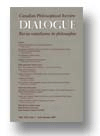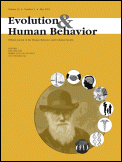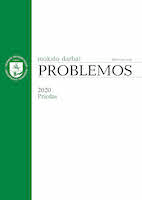
BIOLOGY & PHILOSOPHY
Scope & Guideline
Challenging Perspectives on Life through Philosophical Lenses
Introduction
Aims and Scopes
- Interdisciplinary Integration:
The journal emphasizes the integration of biological sciences with philosophical frameworks, encouraging discussions that bridge empirical research and theoretical analysis. - Evolutionary Theory and Philosophy:
A core focus is on evolutionary theory, examining its philosophical implications and critiques, including concepts of natural selection, fitness, and adaptation. - Cognition and Consciousness:
The exploration of cognition, consciousness, and animal sentience is a prominent area, questioning the nature of cognitive abilities across species and their evolutionary significance. - Ethics and Values in Biology:
The journal addresses ethical considerations and the impact of biological research on societal values, including discussions on animal welfare and environmental ethics. - Cultural Evolution and Normativity:
Research on cultural evolution, social norms, and their biological underpinnings is increasingly relevant, exploring how culture and biology interact. - Methodological Diversity:
The journal supports a variety of methodologies, including empirical studies, theoretical modeling, and philosophical argumentation, to address complex biological questions.
Trending and Emerging
- Complex Systems and Emergence:
There is a growing interest in exploring biological phenomena through the lens of complex systems theory, emphasizing emergent properties and interactions at multiple levels of organization. - Cognitive Ecology and Animal Sentience:
Research on cognitive ecology, particularly regarding animal sentience and cognition, is on the rise, reflecting a heightened awareness of ethical implications in biological research. - Normative Frameworks in Biology:
The emergence of normative frameworks that integrate biological and philosophical perspectives is becoming increasingly relevant, addressing how biological sciences inform social norms and ethics. - Cultural Evolution and Social Learning:
Papers examining cultural evolution and the mechanisms of social learning are trending, highlighting the interaction between biological and cultural processes in shaping behavior. - Interdisciplinary Approaches to Health and Disease:
The journal is seeing an increase in interdisciplinary studies that connect biological research with philosophical discussions on health, disease, and the implications for human society.
Declining or Waning
- Reductionism in Biological Explanations:
There has been a noticeable decline in papers advocating for strict reductionist views in biology, as the journal increasingly embraces holistic and integrative approaches to understanding biological phenomena. - Traditional Views on Species and Taxonomy:
Discussions centered around rigid species classifications and taxonomic hierarchies appear to be waning, with a shift towards more flexible, dynamic understandings of biological classification. - Static Concepts of Natural Selection:
The journal seems to be moving away from static models of natural selection, favoring discussions that incorporate complex interactions and emergent properties in evolutionary processes. - Focus on Individualism in Biology:
There is a decreasing emphasis on individualism in biological discussions, as the journal increasingly recognizes the importance of collective behaviors and multi-species interactions. - Classical Genetic Determinism:
The scope of classical genetic determinism is declining, reflecting a broader acceptance of epigenetic and environmental influences on biological traits.
Similar Journals

DIALOGUE-CANADIAN PHILOSOPHICAL REVIEW
Exploring the Depths of Philosophical InquiryDIALOGUE-CANADIAN PHILOSOPHICAL REVIEW, published by Cambridge University Press, stands as an esteemed platform in the field of philosophy, with a notable impact factor that reflects its scholarly contributions. Established in 1962 and extending its reach into 2024, this journal is indexed under ISSN 0012-2173 and E-ISSN 1759-0949. As part of its commitment to advancing philosophical discourse, DIALOGUE is ranked in the Q2 category for Philosophy in 2023, placing it among the top-tier journals in the discipline. Its Scopus ranking of #338 out of 806 highlights its critical role in shaping contemporary philosophical thought. The journal encourages robust discussions and critical analyses across various philosophical domains, appealing to researchers, professionals, and students alike. Although it does not offer open access, DIALOGUE enriches the academic community by providing valuable insights and fostering dialogue among philosophical scholars in the United Kingdom and beyond.

EVOLUTION AND HUMAN BEHAVIOR
Innovating Understanding of Behavior in an Evolutionary ContextEVOLUTION AND HUMAN BEHAVIOR, published by Elsevier Science Inc, is a leading interdisciplinary journal that explores the intricate relationships between evolutionary processes, human behavior, and cognition. With an impressive impact factor reflecting its rigorous peer-reviewed content and high citation rates, this journal falls in the prestigious Q1 quartile across multiple categories including Arts and Humanities, Ecology, Evolution, Behavior and Systematics, and Experimental and Cognitive Psychology, solidifying its critical role in advancing research in these fields. Since its inception in 1997 and moving towards 2024, it has consistently provided a platform for innovative research and insights, attracting contributions from a diverse range of disciplines. The journal is accessible through various open access options, ensuring that groundbreaking research is widely disseminated for maximum impact. Researchers, professionals, and students alike benefit from the cutting-edge studies published within, making EVOLUTION AND HUMAN BEHAVIOR an essential resource for those looking to deepen their understanding of the evolutionary context of human actions and interactions.

Balkan Journal of Philosophy
Advancing Philosophical Discourse in the BalkansBalkan Journal of Philosophy, published by ACAD PUBL HOUSE, stands as a significant contribution to the field of philosophy, particularly within the Balkan region. With an ISSN of 1313-888X and an E-ISSN of 2367-5438, this journal aims to advance philosophical discourse and scholarship from 2017 to 2024, making it a vital platform for emerging ideas and scholarly debates. Despite its emerging status, it holds a respectable Q3 quartile ranking and is positioned in the 22nd percentile for Arts and Humanities in Scopus, reflecting its growing impact in the academic community. Researchers and students alike can access vital philosophical studies that explore diverse themes and perspectives unique to the region. The journal not only fosters a broader understanding of philosophical thought but also encourages cross-cultural dialogues, making it an essential resource for anyone invested in philosophical inquiry.

JOURNAL OF PHILOSOPHY
Catalyzing critical discourse in contemporary philosophy.The Journal of Philosophy, with ISSN 0022-362X and E-ISSN 1939-8549, is a premier academic publication in the field of philosophy, published by J Philosophy Inc. Located in the United States at Columbia University, 709 Philosophy Hall, New York, NY 10027, this esteemed journal serves as a critical platform for rigorous scholarly discourse and innovative research. With a commendable Impact Factor and ranked in the top Q1 category for Philosophy in 2023, the journal holds a prominent position within the academic community, attracting contributions that push the boundaries of philosophical inquiry. The Journal of Philosophy has consistently ranked in the 91st percentile in the Scopus Arts and Humanities rankings (Rank #65/806), underscoring its influence and the relevance of its published works. Though it operates on a subscription model, the journal’s extensive back-catalog and current issues provide invaluable resources for researchers, professionals, and students alike, promoting a deeper understanding of philosophical concepts and stimulating meaningful discussions in contemporary thought.

Topicos-Revista de Filosofia
Bridging Regional and Global Philosophical PerspectivesTopicos-Revista de Filosofia, published by UNIV PANAMERICANA, DEPT FILOSOFIA, stands as a significant academic platform within the field of philosophy, actively contributing to scholarly discourse since 2006 through its open access model. With an ISSN of 0188-6649 and an E-ISSN of 2007-8498, this journal is dedicated to fostering critical thought and philosophical inquiry in both regional and global contexts. Operating out of Mexico City, it provides a vital avenue for researchers, professionals, and students to engage with contemporary philosophical issues, reflected in its ranking of Q3 in the 2023 category for Philosophy and its position within the 33rd percentile among over 800 peer journals in the field according to Scopus. Topicos not only prioritizes accessibility to philosophical scholarship but also aims to propel academic discussions and elevate the standards of philosophical research. With coverage extending from 2013 to 2024, it invites contributions that bridge diverse philosophical traditions and innovative thought pathways, reinforcing its role as an influential resource for the philosophical community.

Ethics & Bioethics
Bridging disciplines to enhance understanding in bioethics.Ethics & Bioethics is a vital interdisciplinary journal published by DE GRUYTER POLAND SP Z O O, focusing on the ethical dimensions of biological and medical practices. Since its transition to an Open Access model in 2016, the journal has become more accessible, promoting the dissemination of high-quality research to a broader audience. Based in Warsaw, Poland, this journal contributes significantly to the discourse on ethical practices in health policy, education, and philosophy, as evidenced by its impressive Scopus rankings, including a Q1 quartile in Philosophy. Covering a wide spectrum of ethical issues and dilemmas faced in contemporary society, Ethics & Bioethics provides a platform for researchers, professionals, and students to engage with cutting-edge scholarship aimed at advancing understanding and fostering dialogue in the ever-evolving landscape of bioethics. With a commitment to rigorous peer review and academic integrity, this journal is pivotal for those seeking to enhance their knowledge and contribute to the field.

Sophia
Cultivating Knowledge at the Intersection of Thought and TraditionSophia, a prestigious journal published by Springer, is a leading platform for the advancement of knowledge in the fields of Philosophy and Religious Studies. Established in 1962, this open-access journal has embraced a global perspective and invites scholarly contributions that explore complex philosophical questions and the intricacies of religious thought. With an impact factor that reflects its significance, Sophia ranks in the top quartiles of its categories on Scopus, specifically Q2 in Philosophy and Q1 in Religious Studies, showcasing its influence and reach within the academic community. With convenient open access options available since 2009, the journal ensures that research disseminates freely, promoting engagement among researchers, professionals, and students alike. Located in the Netherlands and connected to a reputable international network, Sophia remains committed to fostering intellectual dialogue and enriching the discourse surrounding philosophical and religious issues worldwide.

REVUE INTERNATIONALE DE PHILOSOPHIE
Illuminating Diverse Philosophical PerspectivesREVUE INTERNATIONALE DE PHILOSOPHIE, published by REVUE INT PHILOSOPHIE, is a prestigious journal in the field of philosophy, based in Belgium. With an ISSN of 0048-8143 and an E-ISSN of 2033-0138, this journal has been a vital platform for philosophical discourse since its inception in 1983, successfully evolving through various phases until 2024. Despite currently being positioned in the Q4 category of Philosophy according to the 2023 rankings, it serves as an important venue for scholars and students alike, allowing for a diverse exploration of philosophical thought. Although it is not an Open Access publication, the journal fosters a rich environment for rigorous scholarly research and debate. By presenting articles that challenge and inspire, REVUE INTERNATIONALE DE PHILOSOPHIE ensures that it remains an essential resource for anyone engaged in philosophical inquiry.

Claridades-Revista de Filosofia
Cultivating a Rich Landscape of Philosophical IdeasClaridades-Revista de Filosofia is a distinguished open-access journal dedicated to the exploration of philosophical thought and discourse, published by the ASOC PROMOCION FILOSOFIA & CULTURA MALAGA-FICUM. Since its inception in 2009, the journal has been committed to providing a platform for innovative philosophical research and insights, fostering engagement within the academic community and beyond. Based in the culturally rich city of Malaga, Spain, the journal caters to the diverse landscape of philosophical inquiry, with a focus on nurturing academic exchange globally. Although the journal currently holds a Q4 ranking in Philosophy according to Scopus, it aims to elevate its impact and contribute significantly to contemporary philosophical debates. Researchers, professionals, and students alike will find a wealth of thought-provoking articles and discussions that not only enrich their understanding of the discipline but also encourage critical dialogue about the pressing philosophical issues of our time. With its dedicated mission and open access model, Claridades is poised to be an essential resource for anyone invested in the vibrant and evolving field of philosophy.

Problemos
Unleashing the Power of Ideas in PhilosophyProblemos is an esteemed academic journal published by VILNIUS UNIV PRESS, dedicated to advancing research in the field of Philosophy. With an ISSN of 1392-1126 and E-ISSN 2424-6158, this open-access journal has been disseminating knowledge and fostering scholarly dialogue since 2005. Situated in Lithuania, Problemos has gained recognition, achieving a prestigious Q2 category ranking in the 2023 Philosophy category and a Scopus rank of #458 out of 806, placing it in the 43rd percentile. The journal covers a broad spectrum of philosophical inquiries, making it an essential resource for researchers, professionals, and students seeking to engage with contemporary philosophical discourse. By offering unrestricted access to its content, Problemos promotes the free exchange of ideas and encourages collaboration across disciplines, establishing itself as a pivotal platform within the academic community.